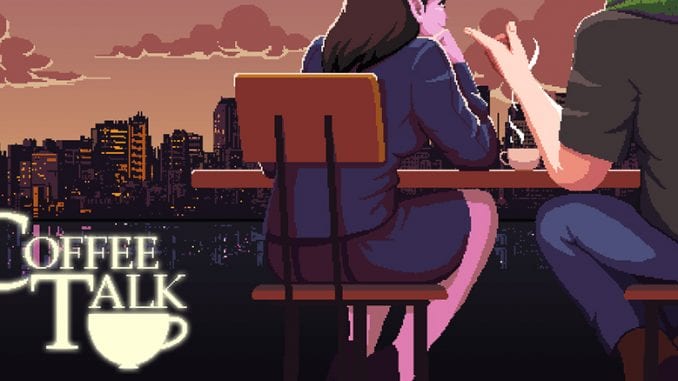
Welcome to the video game about barista life with socially realistic conversations.
BY CRAIG BATORY
SPECIAL TO BARISTA MAGAZINE ONLINE
Photos courtesy of Toge Productions
Coffee Talk is the latest visual distraction to take your mind off of being stuck inside. It’s a game about a coffee shop set in a fantasy version of Seattle that mirrors our own current society. The game’s ’90s-inspired pixel art, the lo-fi musical soundtrack, and the complex social issues within the game are enough to immerse you in its alternate reality for several hours.
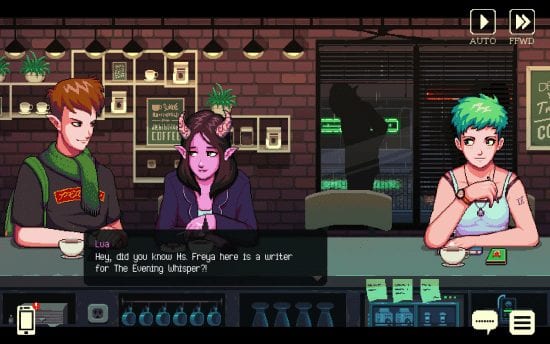
Coffee Talk was created earlier this year by Fahmi Hasni, the former marketing manager at Indonesian gaming studio Toge Productions. The game plays more like a visual novel than an actual video game. It takes place in an ethereal yet fictitious Seattle coffee shop called Coffee Talk, which only opens after the sun goes down. As the main character and café owner, you seemingly have no financial worries about running an after-hours coffee shop.
As for the rest of the game, Fahmi and his team created a cast of characters with open-ended dialogue based on his own life experiences. “We wanted Coffee Talk to mirror our real world, and therefore there are many (social) issues being brought up in the game such as interracial relationships or racial bias, immigration, etc.,” says Toge Productions PR manager Lasheli Dwitri Witjaksana. “Those issues can be really sensitive, so we tried to reflect that through the fantasy characters so that the players can take in all the discussions without any judgment and they can feel safe when the topic arises in the game.”
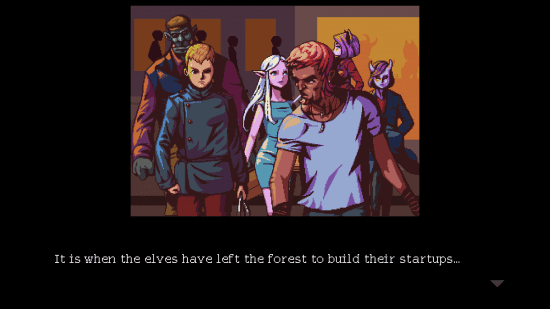
Coffee Talk certainly portrays a plethora of social issues at every turn. Each situation presented in the in-game dialogue mirrors a past or present happening in our current society. For example, there is mention of a virus outbreak. There’s talk of climate change and environmental issues. There are remarks about gun control, immigration, and union worker rights. “We identified big and common problems in our society, and developed them for Coffee Talk based on our crew members’ life experiences,” explains Lasheli. “For each character, we did internal role-play sessions, where we assign a certain character to one of our crew members who have a similar personality or share the same experience/problems with the character. In each session, we start discussing a certain topic. From there, the conversation became the base of how the story of each character develops. That way, we can have a realistic setting in the game.”
The game is further highlighted by the mythological characters, humans, and alien customers that you engage with. Each has their own dilemma, and you listen as they describe their relationship, their careers, and their life struggles. At times, you provide your own neutral yet optimistic response, as you serve them drinks with your unlimited quantity of supplies. The other main character is a human journalist and aspiring author named Freya who is active in almost every scene. She helps facilitate the complex dialogue between you and the other characters with her own quips and suggestions.
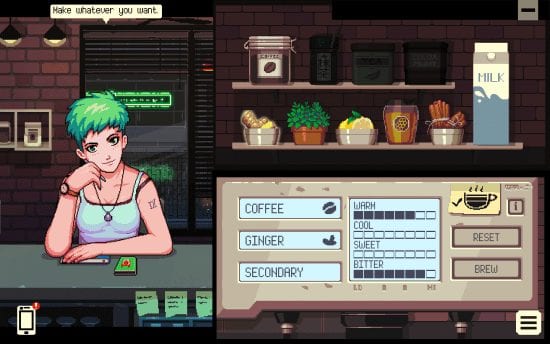
Other notable characters include an Elf named Bailey who is dating a demon named Lua against the wishes of his parents. There’s also a famous but lonely vampire supermodel, a disgruntled orc video game developer, and a werewolf hospital worker with PTSD. Each of these characters discusses realistic social issues about their families, their jobs, and life in general. And with each of these complex situations, as a character, you simply listen and whip up lattes—which, arguably, is a mirror image of a barista’s daily routine.
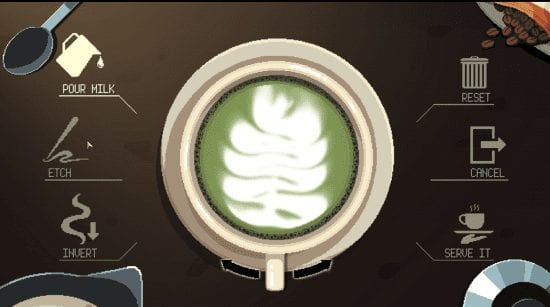
From a coffee-brewing perspective, the game is quite simple. You prepare drinks on an automated espresso machine that has three options for “ingredients.” You can select coffee, chai, chocolate, milk (the list goes on) to craft a specific drink. You punch the ingredients into the machine, and a few animations later, you have your drink. There is also the option for latte art that allows you to “free pour” steamed milk onto the drink. The latte art is certainly fun, though unfortunately the game doesn’t do a great job of simulating pouring steamed milk. Thankfully there’s an “etching” tool that can help you fix any mistakes in your art. You can also “restart” any time you want. In line with the fantasy world that is Coffee Talk, customers never seem to be upset about the quality of the drink, or if it’s prepared incorrectly. They’ll just give a passive-aggressive statement but enjoy their drink nonetheless.
Coffee Talk wears its passion on its sleeve. It dives steadfast into social issues through its direct storytelling, and does a great job of portraying a routine bar shift for any barista. Minus the fact that your character is unperturbed about paying bills and only being open at night, the game is loaded with realism inside its fabricated world. If you like coffee and you like fantasy, this game might be for you.
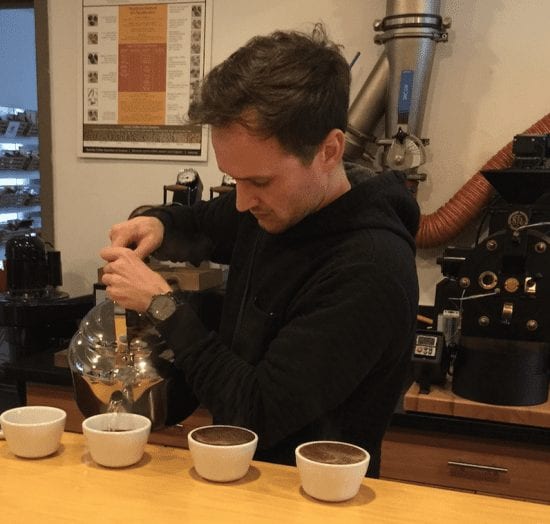
ABOUT THE AUTHOR
Craig Batory is a coffee professional and digital marketer based in Detroit. When he’s not brewing coffee or designing websites, he’s on his bike with his dog, Angus.

